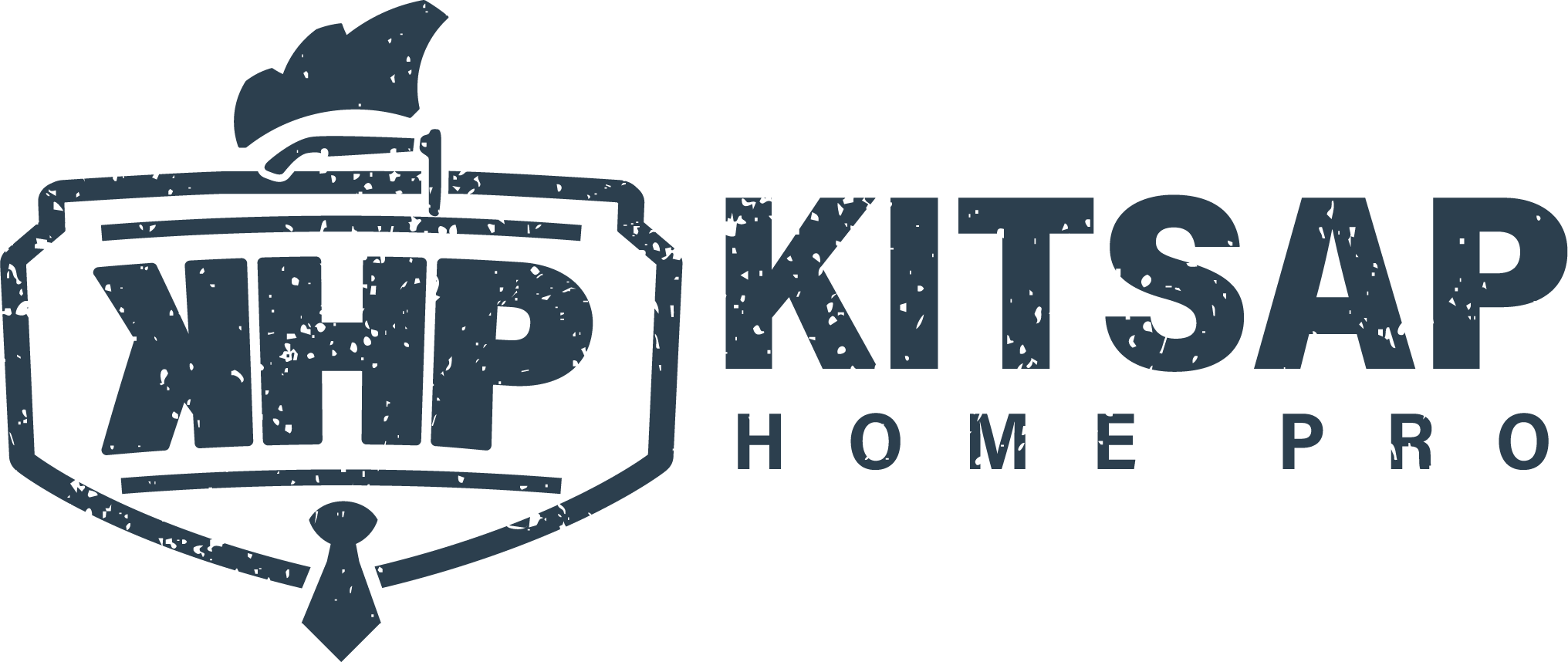Based in Port Orchard — trusted across Western Washington State
Your Trusted Neighbor, Here to Help You Sell Your Home with Ease.
If you’re feeling overwhelmed by a house you no longer want—or just need to sell fast—we’re here to help.
Honest Answers and Clear Guidance From Your Local Real Estate Team. No Games, Just Solutions.
In today’s shifting real estate market, timing is everything. Let’s discuss the best path forward for you. No fluff. No pressure. Just a local team who will shoot you straight.
Your Cash Home Buyer in Port Orchard
Jeremy and Maranda Schooler, founders of Kitsap Home Pro, were born and raised in South Kitsap County. With decades of experience in construction, ministry, and community leadership, we’ve spent our lives helping people in our hometown navigate complex challenges.
Now, as trusted real estate professionals and local cash home buyers, we care about bringing that same care and clarity to homeowners who need to sell fast. Whether your house needs work or you’re facing a tough situation, we offer fair cash offers, no repairs, and a simple process—backed by real results and local trust.
Kitsap Home Pro — built on service, not sales.

What We Stand For
We don’t just fix up houses—we fix the broken experience of selling them.
No commissions games. No rehab guilt. No nonsense.
This is Rebel Real Estate. No Scripts. No Shortcuts.
If you’re ready for a better way—we’ve got you.
Ready to Talk?
If you want to know your options, let’s start there. No pressure. No pushy sales tactics.
Just a real conversation with a real local buyer who’s here to help. Get Clarity and Peace of Mind.
We’re Helping You Sell Your House In Port Orchard
We’re Not Playing the Old Game. We’re Starting a Rebellion.
Frankly, we’re tired of seeing good people get yanked around by a broken system. Endless repairs. Pushy agents. Lowball offers. That’s not real help—it’s noise.
We’ve built a better way. One that’s local, honest, and designed to serve you.
Our clients love that we tell the truth, simplify the process, and help them take control—without pressure, gimmicks, or games.
- We buy homes in any condition
- Sell your house fast — or on your timeline
- No repairs, fees, or commissions
- You stay in control — pick your closing date
Let us guide you through every step of how we help you sell your house

Step 1
Tell Us About Your House
Share some basic info about your Port Orchard property. We’ll take it from there, do our research, and help you.

Step 2
Get a Fair Cash Offer
We’ll make you a clear, no-obligation offer based on market value and the condition of your home. Now you’ll know.

Step 3
Choose What’s Best for You
With HyRES, our Hybrid Real Estate Solution, you can choose between a direct cash sale or a traditional listing—based on what works best for your situation. We’ll help you compare both, then support your next step.
We Buy Houses in Port Orchard (and Beyond)
Selling a house through a traditional agent isn’t the right fit for everyone. Maybe the repairs feel like overwhelming. Maybe you’re facing a stressful situation like foreclosure. Or maybe you just need a fast, clean sale and don’t want to wait around.
You’re not alone, and we’re here to provide a better way.
As local cash home buyers, we make fair, straightforward offers—usually within 24 hours. No fees, no commissions, no endless showings. Just an honest conversation and a clear next step.
What Homeowners Love About Working With Us
Our clients love that we offer both investor speed and agent-level market reach.
It’s not one-size-fits-all—it’s what fits you.
Sell Your Home to a Local Cash Buyer in Port Orchard
At Kitsap Home Pro, we make it simple to sell your home fast in Port Orchard and around Western Washington State—without the stress of showings, repairs, or drawn-out timelines. We buy houses directly, for cash, and we’ve helped homeowners in all kinds of situations find clarity and close with confidence. But don’t take our word for it…
Unlike selling through a real estate agent, our process is quick, straightforward, and built around your needs. No commissions. No code headaches. No pressure.
In fact, many sellers already know they want to sell—but just need someone to talk it through with. That’s where we start: a conversation, not a contract. We’ve spent anywhere from an hour meeting to several months working through the particulars to help a single client solve their specific situation. We’re happy to do it too!
Most people are stuck choosing between a pushy agent or a lowball wholesaler. At Kitsap Home Pro, we don’t follow those rules. We created HyRES—a Hybrid Real Estate Solution—because you deserve more than one tired option.
Let’s skip the scripts and get to what matters—your next move. Start with a no-fluff conversation.
Your Cash Home Buyer in Port Orchard
“Jeremy’s character is one of empathetic patience, and his professional conduct is a source of inspiration to all those he meets.”
“I am honored to say I have known and have worked in collaboration with Jeremy Schooler since 2017. I have witnessed a person who is a remarkable leader, volunteer, communicator, and instructor with incredible dedication and commitment to humanity, community, outdoor recreation, and leadership….
–DEBBEE L.
“His high morals, ethical behavior, and work ethic make him an excellent team member and leader.”
Note from Jeremy: My involvement with the Mountaineers organization has given me opportunities to climb some of the mountains in our area and to work/volunteer in several roles helping others achieve their goals.
–STEVE A.
“Kitsap Home Pro gave a good price for the property. They made the whole process smooth and easy and helped when asked. I would highly recommend them if you are selling your home/property.” – David C.
Sell Your House For Cash In Port Orchard
Traditional home sales force you into one path—list with an agent. That almost always means that you’ll be told fix the house, go through the process of getting it listed, wait for a buyer, and hope it closes.
At Kitsap Home Pro, we give you real options.
We buy houses directly in Port Orchard and throughout Western Washington. Whether you have time to wait to get that top dollar, or need a fast, fair offer with no delays, we’re here to help. Let’s setup a meeting and talk through what those scenarios might look like in your case. Our goal is simple: Help Port Orchard homeowners—and others across the region—sell with less stress and more clarity, on their timeline.
Our “Cash For Offer” Option:

Cash For Houses
Skip the listings, delays, and unknowns. We buy your house, fast, for cash—no repairs, no cleaning, no staging, no stress.

Fair Cash Offer, Fast
We research your property and make a competitive cash offer quickly—so you can review your options and decide what works best.

No Showings, No Disruptions
Hate open houses and endless walk-throughs? So do we. We buy houses as-is, so you can avoid the hassle.

You Choose the Closing Date
Need to move quickly—or buy time to plan? You’re in control. Sell your house fast or slow—it’s up to you.

We Handle Repairs
Got a house that needs work? No problem. We buy houses as-is, and cover any repairs after closing.

We Pay the Closing Costs
You keep more in your pocket. When we buy your house for cash, we cover the closing costs.

No Commissions or Hidden Fees
No agent commissions. No inspection fees. Just a simple, direct sale with a professional title company handling everything.
Our “Traditional Sale” Option:

Real Estate Agents
Maximize Your Sale Price in Port Orchard by listing your house on the open market. We specialize in listing homes as-is.

Maximize Your Home Sale Price – Sell Your House on the Open Market
Want top dollar? Our licensed local real estate agents will list your home and market it to the right buyers.

Specialized Local Marketing
With deep roots in Port Orchard, we know how to price your home right—and get it seen by serious, qualified buyers.

Built-in Backup Plan
If a buyer’s financing falls through, we can step in with a Fast Cash Offer. As your safety net, we make sure you’re never stuck.

Guided by Local Experts
From staging tips to strategic pricing, our team supports you every step of the way. We help you get the most for your home—without guesswork.

Fix & List Option
In some cases, we’ll invest in repairs upfront to help you sell for more—adding $ tens of thousands $ to your final sale price. Ask us if your house qualifies for our “fix and list” program.
“Jeremy provided an amazing experience. We had limited options and he provided the best case scenario for everyone. He was understanding and communicated well. He was available for questions and was responsive during the whole process. I highly recommend him. They are respectable and above board.” – Sassen S
We Buy Houses in Port Orchard Fast, Fair, and As-Is
Need to sell your house in Port Orchard? Or anywhere in Washington State? We’re here to make it simple.
At Kitsap Home Pro, we’re both local home buyers and a licensed real estate agent. That means we can help you sell for top dollar—or sell fast for cash—depending on what works best for your situation.
Here’s how we help:
- List your home with powerful local marketing to attract the right buyer at the best price (standard agent commissions apply)
- Get a fast cash offer if your house needs repairs or you’re ready to sell quickly and as-is (no fees or commissions)
You stay in control. No pressure. Just clear options from a local team you can trust.

Kitsap Home Pro buys houses for cash in Port Orchard area, no matter what the condition. Contact us today!
The Easy Way To Sell Your Home For Cash In Port Orchard
- No agent commissions with our cash offer option
- No closing costs when we buy houses
- We handle all repairs—sell your house as-is
- Skip open houses and showings
- We can buy your house fast—on your timeline
- Already have a cash offer? Let us try to beat it
- And, if none of that is right, we can help you professionally list it with our in-house licensed real estate agent services.
At Kitsap Home Pro, we’re a trusted local cash home buyer—and also licensed real estate agents—giving you more options to sell your house, your way.
Want speed and simplicity? We can buy your house fast with a fair, with a simple as-is cash offer. Prefer to list it for top dollar? We’ll help you do that too—with expert research, pricing, marketing, and support.
You stay in control. We’re simply here to guide you, not pressure you.
Just fill out the short form below and we’ll reach out to walk through your best options—whether you want a quick cash sale or a top-dollar listing.
Even if your house is in poor condition, has bad tenants, or feels like a mess to deal with… we can help. That’s what we do!
Let’s figure out what works best for you.
We Buy Houses in Port Orchard
Thinking about selling your house in Port Orchard? Kitsap Home Pro is your trusted local cash home buyer—we buy houses across the area, fast and as-is.
We know how the market shifts across neighborhoods like Southworth, Manchester, South Colby, South Park, Retsil, Annapolis, Gorst, and Sunnyslope—and we buy homes in every one of them.
Inherited property? House needs work? No problem. We’re here to help you find the best solution for your unique situation.
Local, Fast, And Fair Cash Home Buyer
We Buy Houses In Port Orchard, Washington, And…
Serving Port Orchard &
More Cities We Serve
We Buy Houses For Cash in Port Orchard
Port Orchard is full of neighborhoods we locals know by name—Sunnyslope, Southworth, Manchester, South Colby, Annapolis, South Park, Olalla, Burley, Parkview Terrace. And at Kitsap Home Pro, we buy houses in all of them.
No matter the condition or situation, we offer a fast, fair, and local solution to sell your house.
The Easiest Way to Sell Your House Fast in Port Orchard
Whether you’re dealing with financial pressure, repairs you can’t handle, or just need to move quickly—we can help.
Here’s how:
- Option 1: Get a fast, fair cash offer and sell your house as-is
- Option 2: Let our local agents help you list it for top dollar
- Option 3: We work together with you and employ our HyRES option to create a custom solution
You stay in control—and we walk with you every step of the way to sell your house.
Get started with a free, no-pressure consultation. Kitsap Home Pro is your trusted local cash home buyer. Let’s find the right path forward together.
“The service provided was excellent. He gave us the price we were asking for and he worked with us all the way through the sale. Very Pleased.” – Sam T.
“Maranda and Jeremy went above and beyond to help us prepare and sell our home” – Benjamin S.
We’ve helped homeowners from Port Orchard and across Western Washington walk away from stress and step into peace of mind. Born and raised right here in Port Orchard and with more than 25 years of experience in and around construction, and now real estate, we care about our local neighbors.
Whether your home is move-in ready or needs major repairs, we can make the process simple.
Because mediocrity is everywhere—we’re not. We are intentionally standing outside the box of the “normal” approach.
“He kept us posted on what was happening every step of the way.” – Stacy S.
My Commitment – From Jeremy:
“I’m not here to close you—I’m here to walk with you.
I’m not much of a salesman anyway. My strategy is simple: focus on how I can help.
It’s easy to get lost in the noise. My job is to slow down, listen, and find out what you really need.
Then we can work together to find a real way forward that works for you.
You’ll get the truth, and hopefully some clarity.
I promise to offer a steady hand when you need it most.”
This is Kitsap Home Pro, a Port Orchard based, family-run business, and the creators of the Hybrid Real Estate Solution (HyRES). Whether you want to sell your home fast for cash or list for top dollar, HyRES gives you both options in one place—no pressure, just clear guidance. Our experience has taught us to be guides to our clients. We truly do just want to help as many people as we can figure out their real estate challenges.
“Jeremy and his team made things happen and it happened fast! … Our home is beautiful and they took care of us like family.” – Adams Family, Port Orchard, WA
Hybrid Real Estate Solution – HyRES
What is HyRES?
HyRES = Hybrid Real Estate Solution
Introducing HyRES: Hybrid Real Estate Solutions.
Most sellers feel forced to choose between two frustrating extremes:
- Work with an agent who pressures you into repairs and showings
OR
- Take a lowball cash offer from an out-of-town wholesaler
That’s because most professionals can only help one way — and they’re trained to push you in that direction.
That pressure didn’t sit right with us.
So we created HyRES: a better path — a quiet rebellion against a real estate system that doesn’t serve real people in real-life situations.
At Kitsap Home Pro, we combine the power of a licensed local agent with the speed and flexibility of a direct cash buyer — all under one roof. That means you can:
• Compare a fast cash offer and a full-price listing
• Get guidance from one trusted team
• Stay in control, with no pressure and real clarity
HyRES gives you options, not ultimatums.
Let’s help you sell with confidence — on your terms.
Why Choose Kitsap Home Pro in Port Orchard?
Most companies offer one way to sell. We offer two, and more creative options – in one trusted place.
- At Kitsap Home Pro, you get the power of HyRES: our Hybrid Real Estate Solution.
- That means you’ll talk with both a professional real estate investor and a licensed Washington State broker, a “real estate agent”—so you get clear, unbiased guidance on your best path forward.
- Want to sell your house fast, as-is, for cash? We can help.
- Want to list it on the market for top dollar? We can help with that too.
- Not sure yet? That’s where we shine.
We don’t push one option. We walk with you through all of them—so you can make the decision that’s best for your life, not just your house.
That’s the HyRES difference. That’s Kitsap Home Pro.
Reach out today to talk about all of your options.
Still Need Help Figuring Out The Best Way To Sell Your Port Orchard House?
We’ll help you explore your options — whether you need to sell fast for cash or list with confidence. We buy homes in any condition.
Still Have Questions? You’re Not Alone.
- Do I have to accept your cash offer?
Nope. Our offers are 100% no-obligation. Whether you’re just exploring or ready to act, we’re here to help you make the best choice for your situation. - What if my house needs work or is in rough shape?
No problem. We buy houses as-is—no cleaning, no repairs, no hassle. Even if it has bad tenants or hasn’t been updated in years, we can help. - What if I’m not sure I want to sell yet?
That’s totally fine. Our process starts with a conversation, not a commitment. We’ll walk you through your options and support you no matter what you decide. That’s exactly why we created HyRES. - Can I compare both options? → Absolutely. That’s the power of HyRES. We want you to compare!
If you are ready to sell your house in Port Orchard, WA, connect with us today.
Seller Testimonials
Hear from our satisfied customers
Don’t just take our word for it! Our satisfied customers have shared their experiences with us, and we’re proud to share them with you. Here’s what some of our customers have said about working with us:
These testimonials demonstrate our commitment to providing exceptional service and fair cash offers to our customers. We’re proud to be a trusted local cash home buying company in Port Orchard, and we look forward to working with you.





